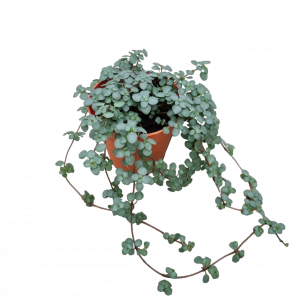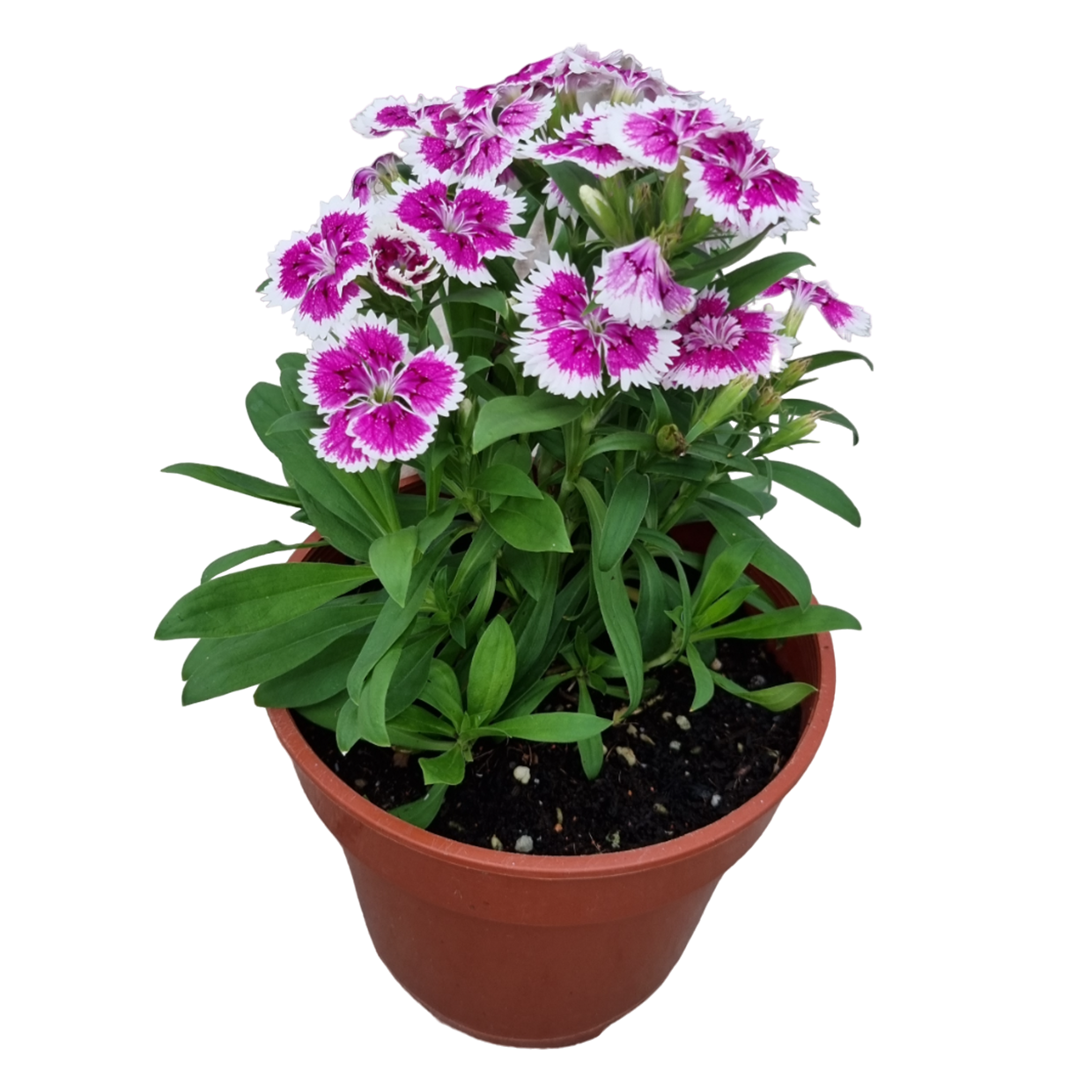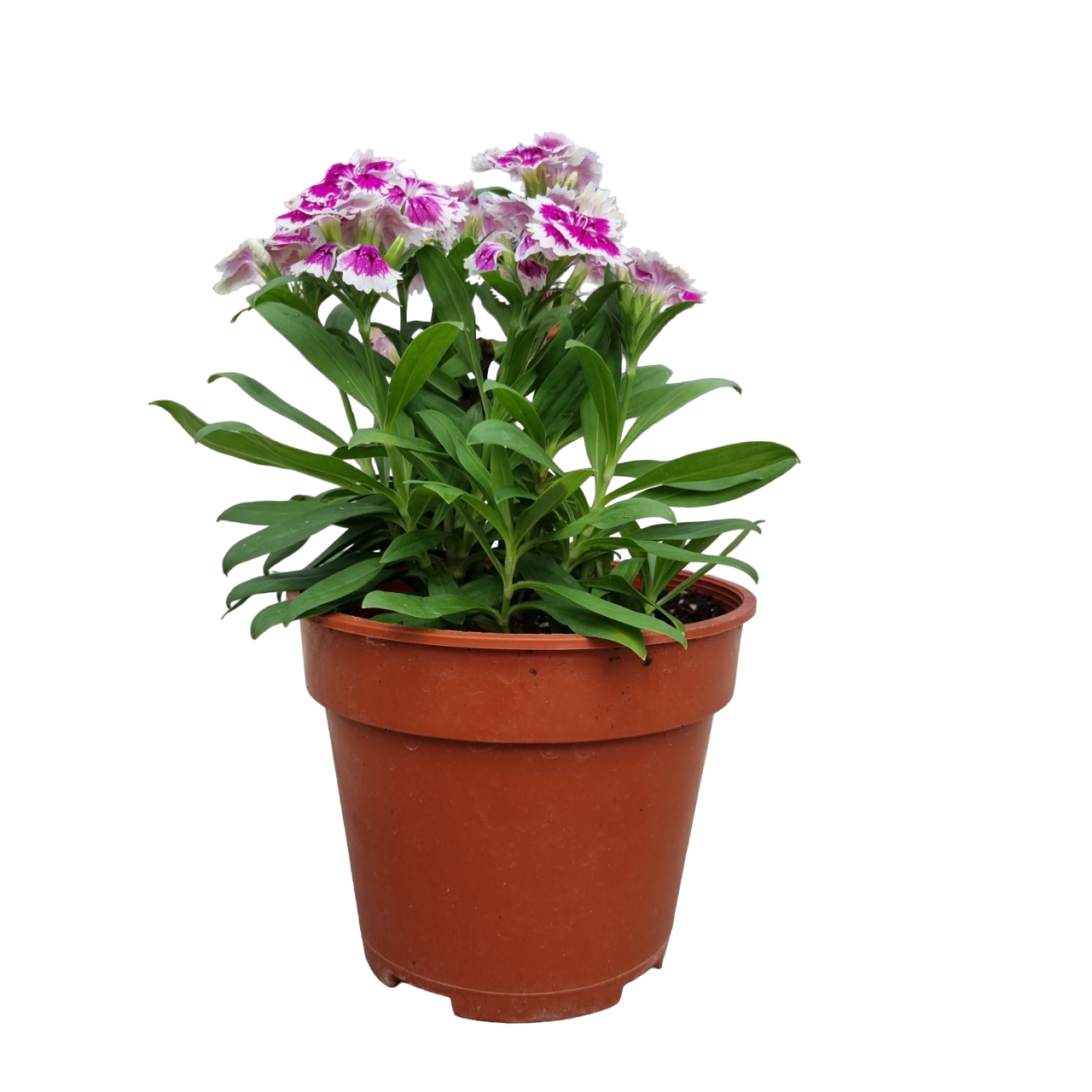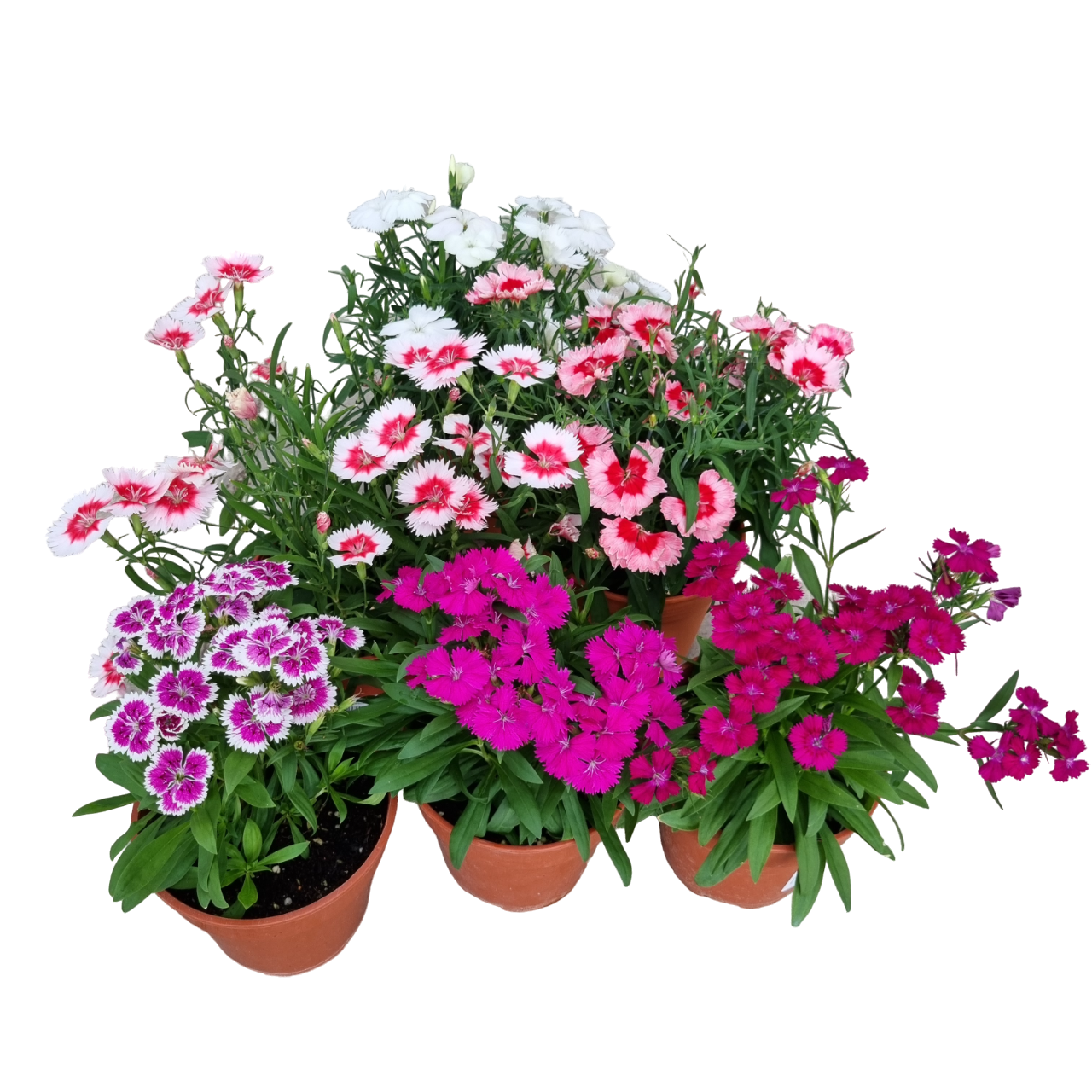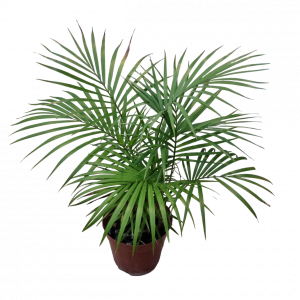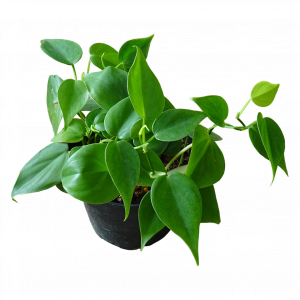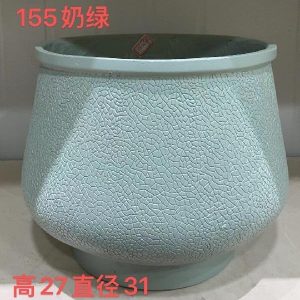Dianthus barbatus ‘Midget’, commonly known as Sweet William, is a compact, dwarf variety of the popular Dianthus species, native to Europe and Asia. Characterised by its small, vibrant clusters of fragrant flowers, Dianthus ‘Midget’ produces an abundance of colourful blooms in shades of pink, red, white, and purple, making it a lovely addition to borders, containers, and hanging baskets. The plant forms a neat, bushy mound with narrow, lance-shaped leaves and has a compact growth habit, reaching a height of only around 20 to 30 cm. Known for its hardy nature and long-lasting flowers, it is a favourite for adding bright colour and fragrance to gardens.
Plant Care Guide:
Light: Sweet William ‘Midget’ thrives in full sun, needing at least 4–6 hours of direct sunlight each day to encourage abundant blooming. The more sunlight it receives, the more prolific the flowers will be. However, it can tolerate partial shade, especially in hotter climates.
Watering: Water regularly to keep the soil moist but not soggy. Sweet William prefers well-drained soil, so ensure the plant is not sitting in water. Avoid overwatering, as this can lead to root rot. Allow the top layer of soil to dry out slightly between watering.
Soil: Well-draining, slightly alkaline soil is ideal for Dianthus barbatus ‘Midget’. The plant thrives in rich, loamy soil that is moderately fertile. If growing in containers, use a quality potting mix with good drainage to prevent waterlogging.
Humidity: Sweet William prefers moderate humidity but can tolerate drier conditions. If growing indoors or in an area with lower humidity, it’s important to ensure the plant gets adequate air circulation to prevent fungal diseases. Avoid placing it in overly humid or wet environments.
Temperature: This plant grows best in warm conditions with daytime temperatures around 20–25°C. It can tolerate higher temperatures but may require some afternoon shade during very hot periods to prevent wilting.
Fertilising: Use a balanced, slow-release fertiliser to promote healthy growth and vibrant flowering. Apply a fertiliser with equal proportions of nitrogen, phosphorus, and potassium (e.g., 10-10-10). Organic compost can also be applied to improve soil fertility.
Common Pests: Sweet William ‘Midget’ may be susceptible to pests such as aphids, spider mites, and mealybugs. Regularly inspect the plant for pests, particularly on the undersides of the leaves and flower stems. If pest problems arise, treat with an organic insecticidal soap or neem oil to keep infestations under control.
Lighting: Full Sun
Watering: Water Moderately
Watering Frequency: Daily
Aphids: Aphids are tiny, pear-shaped insects that range in color from green to yellow to black. They feed on the sap of plants using their sharp, piercing mouthparts and can cause stunted growth, curling leaves, and other damage. They reproduce quickly and can form large colonies, making them a common pest in gardens and greenhouses..
Root rot: This can occur if the soil is kept too wet or if the plant is overwatered. Symptoms include wilting, yellowing leaves, and a foul odor from the soil. To prevent this, make sure to use well-draining soil and avoid overwatering..
Powercote NPK 15+15+15+TE (450g): Every 3 Months.

